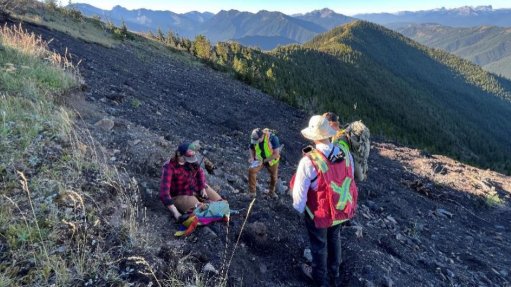
The British Columbia government has introduced a new Mineral Claims Consultation Framework (MCCF) to comply with a court ruling mandating Indigenous consultation before granting mineral claims.
While aimed at addressing constitutional obligations, the move has sparked concerns from the mining industry over confidentiality and permitting timelines.
The MCCF, set to take effect on March 26, replaces the province’s automated mineral claim registration system with a new application-based process.
The framework introduces Indigenous consultation to the claim staking process through a newly introduced application process prior to registration. Previously, consultation with Indigenous communities was not required until applying for permits to conduct mechanical mineral exploration work.
The shift comes in response to a 2023 BC Supreme Court decision that found the previous process did not fulfill the government’s duty to consult First Nations under Section 35 of the Constitution Act. The ruling acknowledged that the mere granting of a claim, even before permit applications, could impact Indigenous rights and title.
Under the new framework, companies seeking mineral or placer claims must first submit an application through the Mineral Titles Online platform, triggering consultation with affected First Nations. Applications will be batched at least monthly for review, during which the claimed area will be held in reserve, preventing competing applications. The province has set a target processing timeline of 90 to 120 days.
While the framework preserves existing claim rights and exploration activities, the industry argues that the changes add uncertainty to an already complex permitting process.
The Association for Mineral Exploration (AME) welcomed the government’s publication of the MCCF but voiced strong concerns about its implementation. The organisation criticised the last-minute release of the final framework, leaving little time for industry adjustment before the court-mandated deadline.
“The government has taken the full 18 months to get to this stage, but only meaningfully engaged with industry in recent months,” said AME board chairperson Trish Jacques. “This has limited our ability to provide feedback on complex issues, and while some progress has been made, the framework still falls short.”
A key industry grievance is the disclosure of applicant identities during the consultation process, which AME argues compromises confidentiality and could expose early-stage exploration plans to competitors.
“The decision to include applicants’ names in the processes takes away confidentiality of the applicant and the protection of their intellectual property. This means the process cannot be guaranteed to be unbiased and objective," said Jacques,
Further, the framework’s timeline commitments are viewed as nonbinding targets rather than firm guarantees.
“The Premier has promised to guarantee permitting timelines, yet what we see here is a ‘wait-and-see’ approach,” Jacques added.
"AME has been clear that timelines must be upheld to ensure investment in early-stage mineral exploration.”
The MCCF rollout comes as the province prepares to overhaul the Mineral Tenure Act in 2026. AME warned that pushing ahead with additional regulatory changes before the MCCF’s effectiveness can be evaluated risks further discouraging investment in the province’s mineral sector.
“With economic uncertainty heightened by Trump tariffs and the democratic instability surrounding Bill 7, layering more regulatory upheaval on top of an already challenging environment is a misstep,” said Jacques. “The government needs to slow down and let this process play out before imposing further instability.”
Despite industry frustration, the province has committed to an ongoing review of the MCCF, with a formal evaluation and feedback process scheduled six months after implementation. The government maintains that the framework is a necessary step toward reconciling mineral exploration with Indigenous rights. ![]()